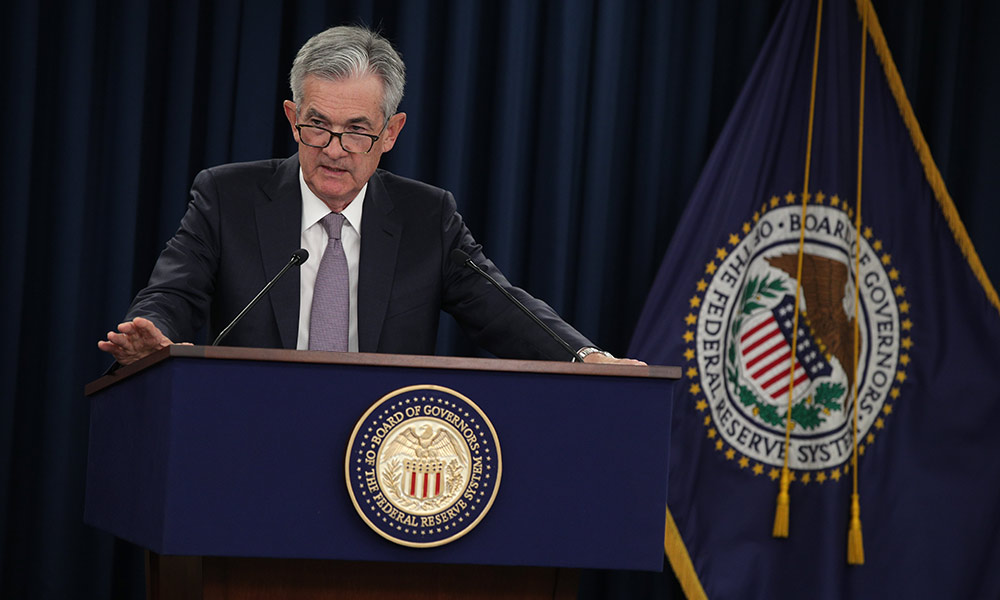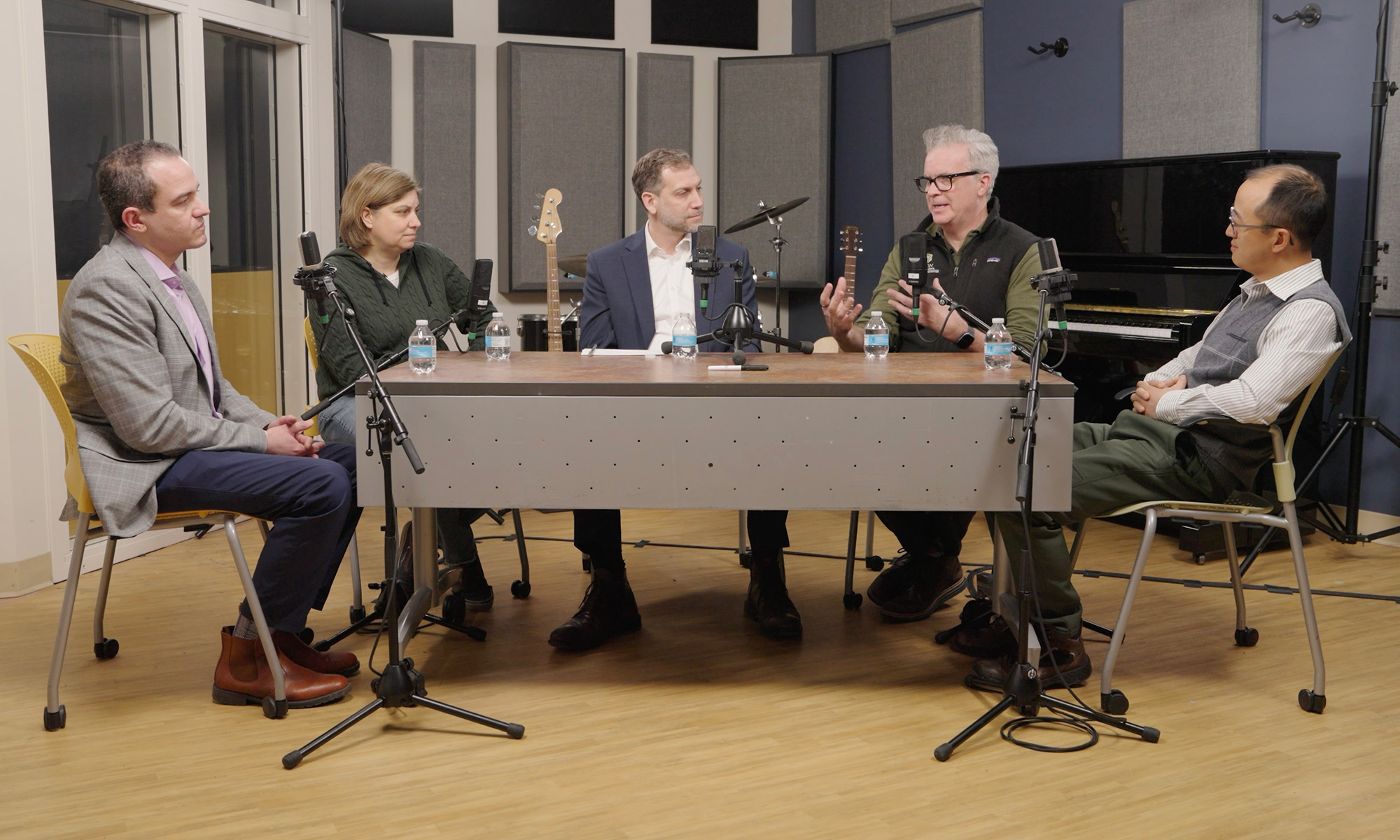A strong US economy and reduced tensions in the international trade arena. That’s why Narayana Kocherlakota, the Lionel W. McKenzie Professor of Economics at the University of Rochester, expects the Federal Open Market Committee (FOMC) to stay the course at its first meeting of the year January 28 and 29.
Kocherlakota, a former president of the Federal Reserve Bank of Minneapolis, says that will likely be the story for all of 2020. One development to watch is President Donald Trump’s nominations to the board of governors of the Federal Reserve System.
Will there be any change in interest rates?
At the December meeting, the FOMC’s median forecast was that there would be no interest changes throughout 2020. That would be my forecast as well. Obviously, events can unfold in such a way that would lead the FOMC to deviate from that forecast, but the committee seems to feel that the economy is in a good position and that interest rates are in a good position, as well.
Let’s go through a few issues: First, the impeachment trial.
Like most observers, I’m anticipating that the impeachment trial will unfold rapidly, and the president will not be convicted by the Senate. Based on that outlook, I don’t see any reason there would be an effect on the economy.
The recent trade agreement with China: China has agreed to buy hundreds of billions of dollars in additional products from the US in the next two years, while the US will lower tariffs on Chinese goods.
To the extent we’re seeing these trade agreements—including the one with Mexico and Canada—reached as we head toward the election, the administration is cutting back on its bellicosity in the trade arena, which will be good for the global economy and for the US economy. It matters more for the global economy, but there are certain portions of the US economy—in the manufacturing sector, agricultural sector—where these agreements will also be material. For the Fed, I would guess that it probably matters a little in their forecast, but not very much.
There are new numbers regarding the deficit and the national debt. The deficit is now above a trillion dollars; the debt is above 23 trillion. Is that a concern?
The Fed for a long time has expressed concerns about the long-term track of the deficit, as well as the debt, but those concerns usually don’t affect short-run considerations. Those are long-run factors as the committee tries to hit or maintain the 2 percent inflation target. Right now, the deficit is at about 4 percent of gross domestic product; the Congressional Budget Office is forecasting that 30 years from now it will be closer to 9 percent. Many observers would say before that happens changes should take place in order to get the deficit under control, which would require either an increase in taxes or a cut in entitlements. The Fed has never taken a stand on which path Congress should adopt, but they have said Congress should adopt one of those two paths.
What about the coronavirus, which, to date, has infected more than 900 people in China, killing more than 80?
My own assessment is that, based on what is known now, the FOMC would likely view the novel coronavirus as having only minor effects on US growth. However, I’m sure that it’s one of the factors that the Committee will continue to watch closely as we get deeper into 2020.
Is there anything out there that’s troublesome, that’s a red flag for the economy?
Things are very good right now. And the fact that things are very good might be reason for concern. Asset prices are elevated, and that raises the risk that they might fall sharply. We’re starting to see some pullback in the hotter real estate markets. To a limited extent that’s probably a good thing. But if it became more dominant—or if the correction became more pronounced—that would probably cut back on people’s desire to spend, and that would pose a risk to the economy.
The big threat to the global economy was the trade war coming out of the White House. The White House seems to be declaring peace/victory at this point, and that will be good for the global economy. So some of the risks that were highlighted by the Fed during 2019 are less material now.
The Fed has been working on an update to its long-term strategies. Will we see that statement this month?
We’ll get a release about a long-term goals statement at this month’s meeting. It probably won’t have much in the way of changes. I think the Fed is still in the process of its reevaluation.
Is there any other news about the Fed that’s significant?
President Trump has been expressing regrets about his appointment of Jerome Powell to be Fed chair, wishing he had gone in a different direction with another Republican, namely Kevin Warsh, who was a member of the board of governors during the Great Recession. This is another way for the president to try to put pressure on the committee.
Also, the president has nominated two individuals to fill a pair of vacancies on the board of governors. Christopher Waller, who’s a longtime academic and Fed staffer. It’s a slightly unusual pick. He’s a research director at the Federal Reserve Bank of St. Louis. But Waller does fit within the broad realm of what one might call conventional thinking about monetary policy
The other choice—Judy Shelton—is more unconventional in her thinking, and I think she will face more questions, as a result, from the Senate as she goes through the confirmation process.
What makes Shelton unconventional?
She tends to focus on the importance of keeping the price of gold stable. This is not the conventional approach to monetary policy in the United States. One could take the view that it’s actually in conflict with statute, which says the Fed is supposed to be targeting price stability, which is interpreted as the price of all goods and services, not just the price of gold. So I think she will face questions about how she plans to think about monetary policy. Waller, on the other hand, will face fewer questions. He’s a well-established academic who approaches monetary policy in a way that is clearly in accordance with statute. With Shelton, it’s less clear.





